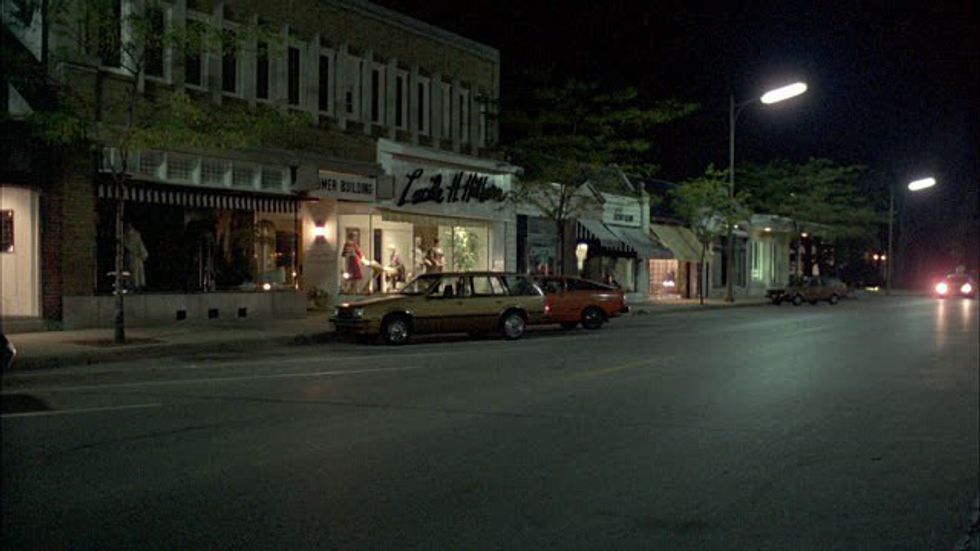I actually never really knew racism or discrimination. I came from a small town — called Chowchilla, California — which seemingly was divided between Mexican and White people. I heard from friends and family, that there was cop racism and discrimination going on around town, but I had never witnessed it myself. Perhaps it was the fact that I was, in essence, a house cat: I would wake up, go to school, go to wrestling practice, go home, eat, sleep and do it over again the next day. I would spend Friday nights at home, with a hot brewed cup of homemade abuelita hot chocolate, and a conchita (Mexican bread) and watch the "What Would You Do?" show. I kept it simple.
The next day, I would wake up to a knock at the door. It was the cops at my front porch, looking for my little brother. My younger brother was white, he was mixed-race like me, but had a light complexion. He could pass for Asian or White. In comparison to my skin tone, the difference was drastic. My younger brother was beyond stubborn, he was demanding, insecure and manipulative. He would always want his way and he usually got it. This morning was different though. He was about to be escorted to school by the cops, for missing too many days. He was essentially the law-breaker of the family.
The years went on by and still, nothing. I was adored at school by the teachers; I had no conflict with anyone at school. I was impervious to the effects of this racism and discrimination going on in town. It wasn’t until one night, at 1 a.m., when I had snuck out of the house with a friend that I found out what really was going on in this town.
An eventful night, when the cop stopped me
It was a Thursday night and my friend and I felt the need to go egg some houses, and slash some tires, for the fun of it — I guess that was me experimenting with my rebellious side. I am not going to lie, it was liberating and I can’t say I regret it. We smoked some weed after and then parted ways, satisfied from a night's work well done. You see, in a small town like Chowchilla, you had to get creative with the way you spent your time. So many our age — 15 and 16 year olds — would resort to vandalism and partying late at night, wreaking havoc all over town to the point where the city implemented a curfew. I think it was an 11 p.m. curfew, not sure. But clearly, no one listened. I was walking home, when a cop stopped me. I was a bit high still and craving nachos from La Mexicana, but they had closed for the night. He flashed the light on me and blinded me, causing me to almost fall back.
“What are you doing out so late, kid?” The officer asked. Before I could answer, he continued, ”Out late seeing your girl?” I nodded my head, even though that was a lie. I felt good though, that he assumed that. Ha! I took it and ran with it. He reminded me of the curfew, then gave me a ride home. I snuck back into my house, unnoticed, had some leftover pizza and went to bed. Had it been my brother that night, though, things would have turned out differently. He had a record and was recognized by every cop in this town as a rebellious boy. I have no doubt that he would have gotten arrested that night.
What the cop taught me that night
From left to right: One of my older sisters, my younger brother and me. Clearly, you could see the skin tone difference.
My brother and I, raised in the same home by the same parents, turned out very different. It was the life choices we made that determined our fates. At the time, we didn't know that, so we resorted to thinking that the treatment we got was motivated by racism and discrimination. Never would we stop to think that maybe our actions had a lot to do with it.
It wasn't until that night, when the cop stopped me, that I recognized the power of thinking logically. The cop did not judge me by the color of my skin that night. He judged me solely by our interaction, in that moment and that made all the difference. Never did he think of me as a criminal, even though I broke a few laws that night, he never assumed I did.
Perhaps my family and friends had a bad experience with a cop, or another person in authority. And they took that bad experience and made a general depiction of what every cop or authority is. But that is precisely the problem — generalizing. We are so caught up with all of the negative stigmas and stereotypes attached to our race, that we forget to stop and think logically. Could it be possible I am in the wrong here?
I should have gone to jail that night, but I didn't. Instead, I learned that the talk around town was just that — the talk around town. When people don't know how to make sense of something, they classify it as something that does make sense and sometimes that is a negative stigma. Luckily for me, I now know that in order to progress, I must take everything under consideration, judge based on facts and based on the interaction I have with an individual, regardless of their race, religion, background etc. I learned to be more than just a brown mixed-race boy, crying out racism and that is the better state of mind.























